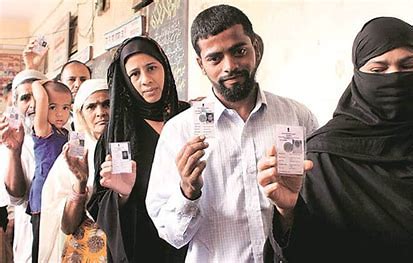Amidst Maharashtra’s upcoming Assembly elections, the Muslim community is prioritising the need to counter “politics of polarisation” and elect a government committed to their safety and addressing social discrimination, according to a report by Zeeshan Shaikh in The Indian Express. Although the community expresses concern over inadequate political representation, especially by Maha Vikas Aghadi (MVA) alliance, they remain broadly supportive of its potential to counter communal divides.
“There is a sense of unease due to MVA’s limited inclusion of Muslims, but no active opposition,” states Dr. Azimuddin, Coordinator of the Federation of Minorities NGOs of Maharashtra. The MVA, including Uddhav Thackeray’s Shiv Sena, historically associated with marginalising Muslims, is now receiving significant backing from the community. Many Muslims see it as the best available means to curb divisive forces.
The elections arrive shortly after the Lok Sabha elections, where an alignment of Muslim and Ambedkarite Dalit votes helped MVA secure 30 out of 48 seats. The BJP attributed its loss in 14 Lok Sabha constituencies to this bloc of votes, with Deputy CM Devendra Fadnavis referring to it as “vote jihad” – a term suggesting deliberate voter consolidation by the Muslim community.
Maharashtra’s 1.3 crore Muslims, comprising 11.56% of the state’s population, hold a significant demographic presence across 38 districts where they make up at least 20% of the population, including nine constituencies where their share exceeds 40%. Yet, their political representation remains limited. The highest number of Muslim MLAs in recent decades was recorded in 1999, with 13 representatives elected. In the 2019 elections, the number fell to 10.
With communal tensions rising, safeguarding peace has become a key priority. Maharashtra has seen an increase in hate speech at right-wing rallies, with inflammatory comments from BJP-affiliated figures like Nitesh Rane, MLA from Kankavli and son of former Chief Minister Narayan Rane, contributing to a climate of hostility. The Muslim community’s current stance underscores a shift from seeking representation alone to countering the growing tide of polarisation and discrimination. In the face of heightened communal rhetoric, they see MVA as a means to address these concerns, despite the alliance’s shortcomings in representing them politically.




